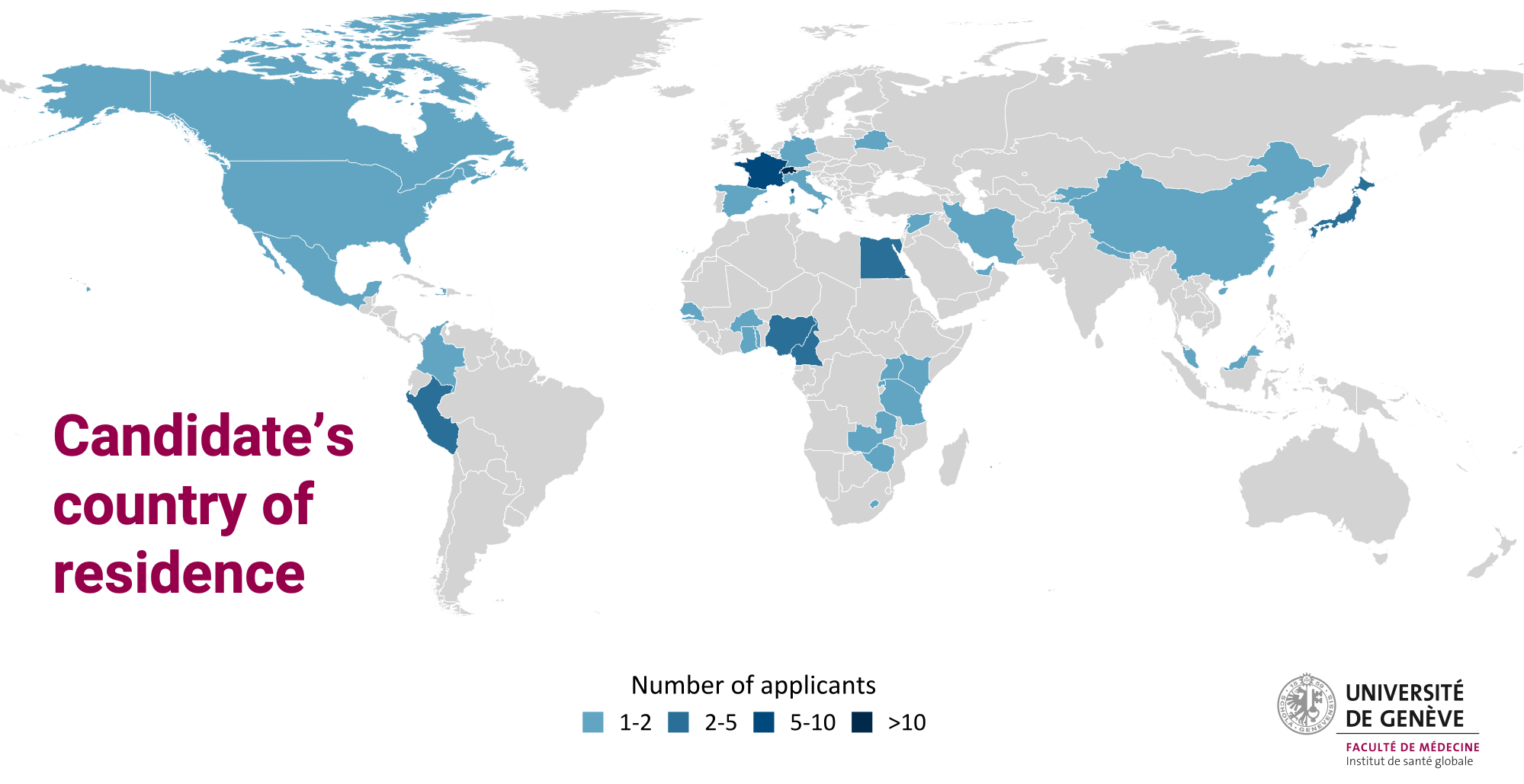Doctoral program in Global Health (PhD)
Introduction
Since its inception in the Spring Semester of 2015, the program has successfully enrolled ten cohorts of students. Approximately 40 students have already defended their theses on a wide range of critical topics such as mental health, digital health, medical humanitarian action, international health regulation, one health, health geography, epidemiology, and healthcare-associated infections. The program has currently more than 60 dedicated students who are actively engaged in their PhD training. Many of these students are professionals working in esteemed international health organizations and non-governmental organizations, including WHO, UNAIDS, USAIDS, UNOPS, Global Fund, GAVI, ICRC, UNICEF, and MSF. Nearly half of the students are based outside of Europe, illustrating the program's global reach and diverse international representation.
The program is tailored to meet the needs of aspiring researchers, lecturers, and mid-career professionals who seek to advance their research skills while remaining actively involved in their respective fields. By offering an environment for growth and development, the program supports individuals in furthering their research expertise and making a lasting impact on global health.

Structure of the program
The structure of the program is original in that it provides for 1) an onsite training component, in the form of presential weeks in Switzerland (14 ECTS), and 2) a distance learning component (4 ECTS).
The modular presential training is based on the offer of a range of doctoral courses accredited by the "Swiss School of Public Health" (SSPH+), which is the umbrella foundation for 10 Swiss universities. This teaching platform has the particularity of hosting and offering doctoral courses in public health to PhD candidates registered in one of the 10 Swiss universities affiliated with SSPH+.
Within this context, the course weeks organized by our team at the Institute of Global Health: the "Spring School of Global Health" (2 ECTS) and the "One Week Medical School" (2 ECTS) are also open to all doctoral students from Swiss universities who are members of SSPH+, at a reduced rate.
Conclusion
The doctoral program provides professionals working in international organizations and non-governmental organizations with the opportunity of carrying out public and global health projects implemented by the institution they serve. At the same time, by developing their methodological research skills and developing their professional networks, doctoral students contribute to the implementation and development of several global health projects of these organizations.
Furthermore, doctoral students from international organizations provide thesis directors–to date, 33 professors from the Faculty of Medicine – with the possibility of opening up new transdisciplinary collaborations. Meanwhile, these organizations see this program as an opportunity to improve the loyalty of their best employees, by offering them the possibility of high-level training on the job, with the doctorate being considered an "executive doctoral degree". In summary, the University of Geneva’s proximity with ‘International Geneva’ greatly facilitates this program and makes it economically efficient for all parties concerned.
